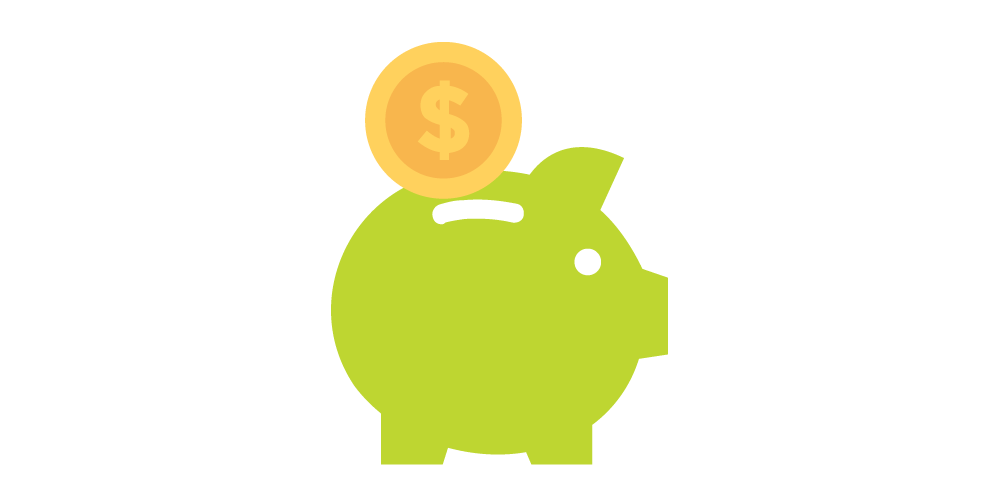
Financial Wellness and Planning
Understand and manage money in ways that provide security, confidence and options to support work, study and personal commitments and interests now and in the future.
10 tips to beat your debt
Use the following tips to guide you, help prevent debt and achieve peace of mind about your personal finances.
- Keep Track of Your Spending and Make a Budget
Start keeping track of what you spend; this is the first step in creating a budget that will help you free up money to reduce your debt. A good budget includes all monthly bills, food, entertainment and miscellaneous items. This will prevent spending thoughtlessly and buying on impulse. - Put Needs Before Wants
Buy what you need first. Eliminate unnecessary expenses by looking for things you can live without. - Reduce Banking Fees
Some automated banking machines (ABMs) charge $2 or more for withdrawals. Use ABMs from your own financial institution and review your banking package. - Limit Credit Card Use
Using credit cards with no plan to pay the debt is reckless and financially irresponsible. To avoid getting into more debt, use cash or a debit card instead of a credit card. That way, you will be spending money you already have. Only use credit when you can pay it off within a few months. - Pay Highest Interest Rate Debts First
If you have a balance on your credit card, then this is likely the debt with the highest interest rate. Never use one credit card to pay the debt of another; use cash or a debit card to avoid accumulating more debt. - Reduce Small, Reoccurring Expenses
Little savings every day can go a long way. Take public transportation or bring your lunch to work. Eliminating that extra $1.50 coffee each workday can mean an extra $400 a year in savings. Put the money saved into an account or immediately direct a portion of your paycheck into your savings account so that you never even see it. Aim to save enough money to be able to pay your bills for six months. - Avoid “Buy Now Pay Later” Offers
When you are having problems making ends meet, the administrative fees tied to such offers and high interest rates if you do not pay on time will only add to your existing debt load. - Contact Creditors
As soon as you realize that you are having trouble making ends meet, call your creditors and explain the situation. In most cases, they will work out a modified payment plan that will make it easier for you to pay off your debt. Then, dedicate a specific time every month to sit down with your bills, pay them and determine how much is available to spend in the month ahead. - Get a Consolidation Loan
This means getting one single loan to pay off all your existing debts and having just one monthly payment to make. Once you consolidate your debts, you must stop using any credit cards or line of credit that you consolidated into the new loan. For more information on a consolidation loan, talk to your banking or financial professional. - Talk to Trusted Financial Professionals
These may include your bank representative, a financial planner or a credit counselling agency. With their help, you will be able to evaluate your current debt situation, determine your present and future needs, make a budget, and find ways to pay off your debt. Be sure to set up a way to pay taxes correctly and on time. Unpaid tax debt that accumulates can cause bankruptcy.
Planning and financial advice
Employee and Family Assistance Program
The U of S's Employee and Family Assistance Program financial experts can talk to you by phone about money concerns and give you information and resources on many topics, such as budgeting, getting out of debt and saving.
Sun Life
If you are eligible for benefits you will have access to Sun live Financial website which has a wealth of information regarding financial planning and investments.
Government of Canada
The Government of Canada provides information on managing your money, debt and investments, planning for retirement and protecting yourself from consumer fraud.
Government of Canada Financial Tools and Calculators

